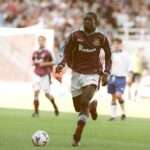There is a long standing belief that basketball is not a contact sport. The logic seems sturdy enough: The sport does employ its most severe penalty—the foul—as a deterrent against excessive physical contact between players. The rules even limit how many fouls a player can have—accumulate five fouls (or six fouls in the National Basketball Association) and you have to watch from the bench.
Yet, as anyone who has played or watched basketball can attest, contact between opponents is unavoidable.
Basketball regulations discourage rough or overly aggressive play, but there is actually no official ban on physical contact. Such restrictions would be ridiculous when one considers the nature of the game. After all, any pastime that requires ten players to be in constant motion—running, jumping, and shooting—within a confined space is sure to result in a collision or two.
Thus, because it is inevitable, the rules must, and do, allow for contact between players. In other words, the mere act of touching an opponent doesn’t necessarily constitute a foul. This guide will review the different types of illegal contact and subsequently explain what makes a foul a foul. Once you know and understand the rules, it will be easier to stay out of foul trouble and in the game.
When Contact Becomes a Foul
There are two distinct types of fouls in basketball: The technical foul and the personal foul.
Technical Fouls
A technical foul is issued when a player, coach, or team commits an infraction of the game’s administrative rules (any rule that has to do with equipment specifications, sportsmanship, or game procedure). These fouls generally do not involve live-ball infractions, but can be issued in response to physical contact between two opponents during a dead ball situation. Examples of actions/behavior that may result in a technical foul include:
- Unsportsmanlike conduct by either a coach or player. Inappropriate language is not tolerated and will be penalized with a technical foul.
- Submitting an incorrect roster.
- Wearing uniforms that do not comply with regulations outlined in the rules
Personal Fouls
A personal foul is a player foul which involves illegal contact with an opponent while the ball is live. The offender is charged with one foul per violation, and on the fifth foul the player is disqualified from the game. Officials have to ensure that the game is always played fairly, and they have to keep in mind how contact effects the play. If the contact creates a disadvantage for either player then it is called a foul—if not, no violation has occurred.
Common Personal Fouls
Because the rules regarding the administration of technical fouls are fairly cut and dry, the following information focuses on personal fouls. Below is an explanation of the five most common personal fouls:
Blocking Foul
It’s illegal to use your body or body position to prevent an opponent from moving freely. If you do, there is a good chance that you’ll be called for a blocking foul, which a referee will indicate by placing both hands on their hips.
The best way to avoid a blocking foul is to stay in a low defensive posture whenever possible so that you can move your feet—instead of just planting your body—to inhibit an opponent’s movement.
Holding Foul
A holding foul is called anytime a player uses his hands to interfere with an opponent’s freedom of movement. And although players typically commit holding fouls with their hands, it is possible to hold with other parts of the body—for example, if you were to purposefully step on an opponent’s foot.
You can avoid a holding foul by keeping your hands above your waist and in full view of the official while playing defense.
Hand Check Foul
A hand checking foul is called when a defender continually uses the hands to disrupt the movement of an offensive player. An official signals a hand check foul by extending one arm and grabbing the wrist of that arm with the opposite hand.
Since the hand check is more subtle than other fouls, it is usually called on perimeter defenders guarding the ball handler—there is a very fine line between maintaining contact with the hands and committing an infraction. For the most part, hand check fouls are called near the perimeter or top of the key or perimet, where most of the ball handling occurs. If a post player uses the hands to restrict an opponent, the foul is usually classified as holding or blocking.
Even though hands can be used to sustain contact between players, the best way avoid racking up hand checking fouls is to keep them off of the ball handler.
Illegal Hand Use
This is the catch-all foul for any infraction the defender commits with his or her hands, excluding hand checking and holding fouls. Illegal hand use is typically called when players attempt to block a shot or when an opponent drives to the hoop.
The best way to reduce your chances of being called for the foul is to maintain a vertical position. This means making sure to keep your arms extended straight above your head as the opposing player comes towards you. If the opponent drives the lane while you are in this position, they are responsible for whatever contact may occur—as long as you don’t move forward to meet him first. Remember, as long as you establish your position, you are entitled to any spot on the floor (and the air above it).
Push
A push foul occurs when a player pushes or shoves an opponent. Keep in mind that a player does not have to use their arms to commit a push foul, as it is quite possible to dislodge an opponent using the body or even the shoulder(s). The “over-the-back” violation is a great example of this type of foul—reaching over another player’s back and initiating contact and is a personal foul.
You can avoid being whistled for a push foul by demonstrating astute body control while on the court.
The Final Call
Basketball is clearly a contact sport. However, you must learn how to be physical and aggressive without committing a foul. Remember, you only have five fouls per game and there is nothing worse than having to leave the court in the fourth quarter because you couldn’t stay out of foul trouble. Know the rules of the game and apply your knowledge to avoid unnecessary fouls.



